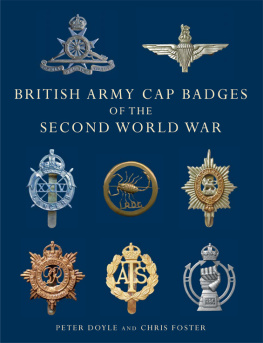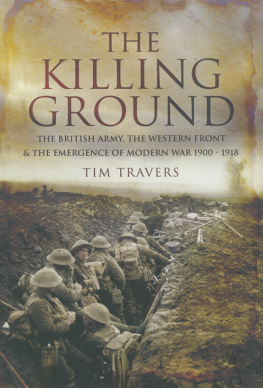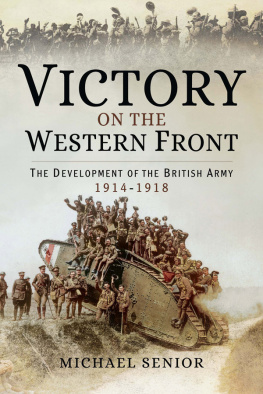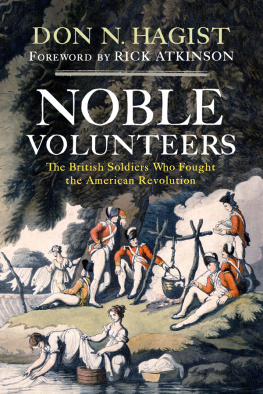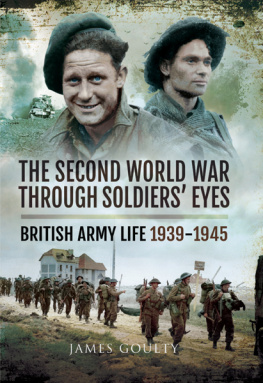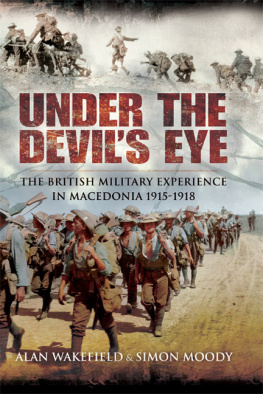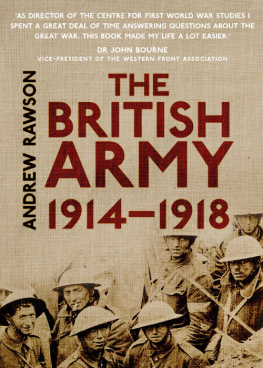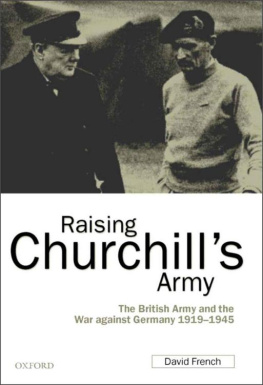First published in Great Britain in 2018
Pen & Sword Military
An imprint of
Pen & Sword Books Ltd
Yorkshire - Philadelphia
Copyright Michael Senior, 2018
ISBN 9781526703040
eISBN 9781526703064
Mobi ISBN 9781526703057
The right of Michael Senior to be identified as Author of this work has been asserted by him in accordance with the Copyright, Designs and Patents Act 1988.
A CIP catalogue record for this book is available from the British Library
All rights reserved. No part of this book may be reproduced or transmitted in any form or by any means, electronic or mechanical including photocopying, recording or by any information storage and retrieval system, without permission from the Publisher in writing.
Pen & Sword Books Ltd incorporates the Imprints of Aviation, Atlas, Family History, Fiction, Maritime, Military, Discovery, Politics, History, Archaeology, Select, Wharncliffe Local History, Wharncliffe True Crime, Military Classics, Wharncliffe Transport, Leo Cooper, The Praetorian Press, Remember When, White Owl, Seaforth Publishing and Frontline Publishing.
For a complete list of Pen & Sword titles please contact
PEN & SWORD BOOKS LTD
47 Church Street, Barnsley, South Yorkshire, S70 2AS, England
E-mail:
Website: www.pen-and-sword.co.uk
Or
PEN & SWORD BOOKS
1950 Lawrence Rd, Havertown, PA 19083, USA
E-mail:
Website: www.penandswordbooks.com
Acknowledgements
I would like to thank the staff of The National Archives, the Imperial War Museum and the British Library for their courteous and efficient support. It is always a pleasure to visit these wonderful institutions. Throughout the book I have quoted from numerous articles and monographs and I have endeavoured to make the appropriate acknowledgements. My thanks go to all the authors concerned and in particular to the contributors to Stand To!, the journal of the Western Front Association and to the authors of the memoirs held by the Imperial War Museum.
I have received considerable help from Malcolm Allen, Jane Perkin, Ann and Bev Risman and Jim Spence. John Newton and Colin Picton deserve a special word of thanks for the time and trouble they have taken trawling through local papers in pursuit of relevant news items. I am indebted to Professor Ian Beckett who kindly read the draft text and gave many useful suggestions. My wife, Jenny, has contributed to this book in many ways and she has my heartfelt thanks.
I am grateful to the following for their permission to use their photographs in this book: the Socialist Health Association (Dr Christopher Addison); the History of Economic Thought (E. Llewellyn Smith); Carolynn Langley (the Stoke Hammond War Memorial); and David Brooks and Jeremy Harte of the Bourne Hall Museum (Police Sergeant Thomas Green and his Funeral Cortge). Other photographs are courtesy of the Taylor Collection (Asquith; Lloyd George; Churchill; Sir William Robertson; Sir Henry Wilson; Sir Douglas Haig, Haig and Plumer; Nursing Sister; the Big Four; Evening Standard ; Horses; Nobody Wants You; the Aberdeen tank; Peace Celebration) and from Wikipedia where there is no known copyright restriction (Sir Reginald Brade; Edwin Montagu; Bonar Law; General Smuts). Every effort has been made to avoid using photographs restricted in any way and my sincere thanks to the various sources.
It has been a pleasure, as ever, working with my editors, Rupert Harding and Alison Miles of the Pen & Sword Books Ltd team. I am grateful for their encouragement and practical advice.
Any errors that might be found in this book are entirely mine and I offer my apologies in advance.
Introduction
The Consequences of Peace
At 5.15am on Monday 11 November 1918 an Armistice was signed with Germany in a railway carriage in the Forest of Compigne. It signalled the end of the First World War. After four-and-a-quarter years of fighting the combined forces of France, the British Empire, Italy and America had defeated the Central Powers led by Germany, Austria-Hungary and Turkey. Most men on the front line received the news of the Armistice in a mood of subdued relief. Gunner Stokes of the 13th Battery, New Zealand Field Artillery, wrote:
We moved on 11 November and we heard the announcement of the Armistice when we were still in the Forest of Mormal on a cheerless, dismal, cold, misty day. There was no cheering or demonstration. We were all tired in body and mind, fresh from the tragic fields of battle, and this momentous announcement was too vast in its consequences to be appreciated or accepted with wild enthusiasm.


